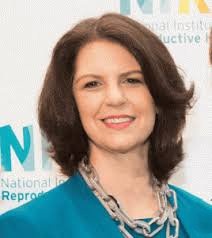Columbia College | Columbia University in the City of New York
Take Five with Andrea Miller ’89

What were you like when you arrived at Columbia?
I was an absolute neophyte — everything was new and different and completely foreign to me. I went to public junior high and high school in Minneapolis, which was “the big city” to me, having spent my childhood living for a year, maybe two, in places like Port Sanilac, Mich.; Palouse, Wash.; Chadron, Neb.; Grand Forks, N.D..; and Laramie, Wyo. My family was pretty poor when I was growing up, so I showed up at Columbia by myself (no parents with me), with all of my worldly possessions stuffed into two green Army surplus duffle bags. I’ll never forget when we went around in a circle in my freshman orientation group to say where we went to high school, and hearing places like Choate and Andover and Georgetown Prep. When they got to me, I said “South.” And everyone was like, “South what?” And then we all laughed. Because as overwhelming as it was to find myself completely out of my element, it was also exhilarating. Everyone was so welcoming and interested in learning about each other because, in truth — regardless of where we went to school or how much our parents made, or whether they were able to help us settle in — it was new to all of us, and it was up to us to create our own “Columbia family.”
What do you remember about your first-year living situation?
I had a single on the 13th floor of John Jay. I tried not to take it as a bad omen that the elevators were broken my first day there! I still remember the little group of us who lived at the end of the hall and around the corner from the lounge (where we had MTV, which I thought was magic). I was kind of adopted by an amazing group of people who lived on 9, some of whom remain among those I hold most dear in my life. (Oh, and food service was all you could eat — what?!?!)
What class do you most remember and why?
In my junior year, I took a class with Anne McClintock GSAS’89 about gender and literature –– but it was even more than I expected, because her scholarship was about race and gender and sexuality, and imperialism and globalization (or whatever we were calling it then). If I had time outside the Core, I focused on political science courses, especially international relations, and had been really politically active in those kinds of things. But this was the late 1980s and women’s reproductive rights were under attack, so I started paying attention to that. Professor McClintock let me write a paper on Roe v. Wade, and insisted that it be a serious critical analysis. So, I critiqued it — I guess you could say “from the left” — saying the privacy doctrine didn’t take into account class and race and the ways those limit the choices women can make. And I credit that course with shifting my lens to the issues that have become my life’s work.
Did you have a favorite spot on campus, and what did you like about it?
I always loved the benches and little hideaway places where you could sit and read, especially in the spring when the flowers and trees were blooming on either side of the Steps. I loved Low Library because you could be up there and feel like you had your own contained, “up above things” part of the campus, a comfortable few steps away from the bustle and bigness of the Steps and College Walk and Broadway or Amsterdam. I was particularly partial to those close to The Thinker or the Henry Moore bronze sculpture that you could turn — there was something comforting about how solid and beautiful they were. (I’m pretty sure there were three Moore sculptures when I was on campus, and I loved them all!)
What, if anything, about your College experience would you do over?
I was so focused on trying to do well in my classes — and being on scholarship, making sure my grades stayed high — even as I worked multiple jobs (both work study and off campus) and did lots of activism and then got on Spectator. Looking back, I wish I could encourage my younger self to take a pause once in a while and maybe not take herself and everything else so seriously.

